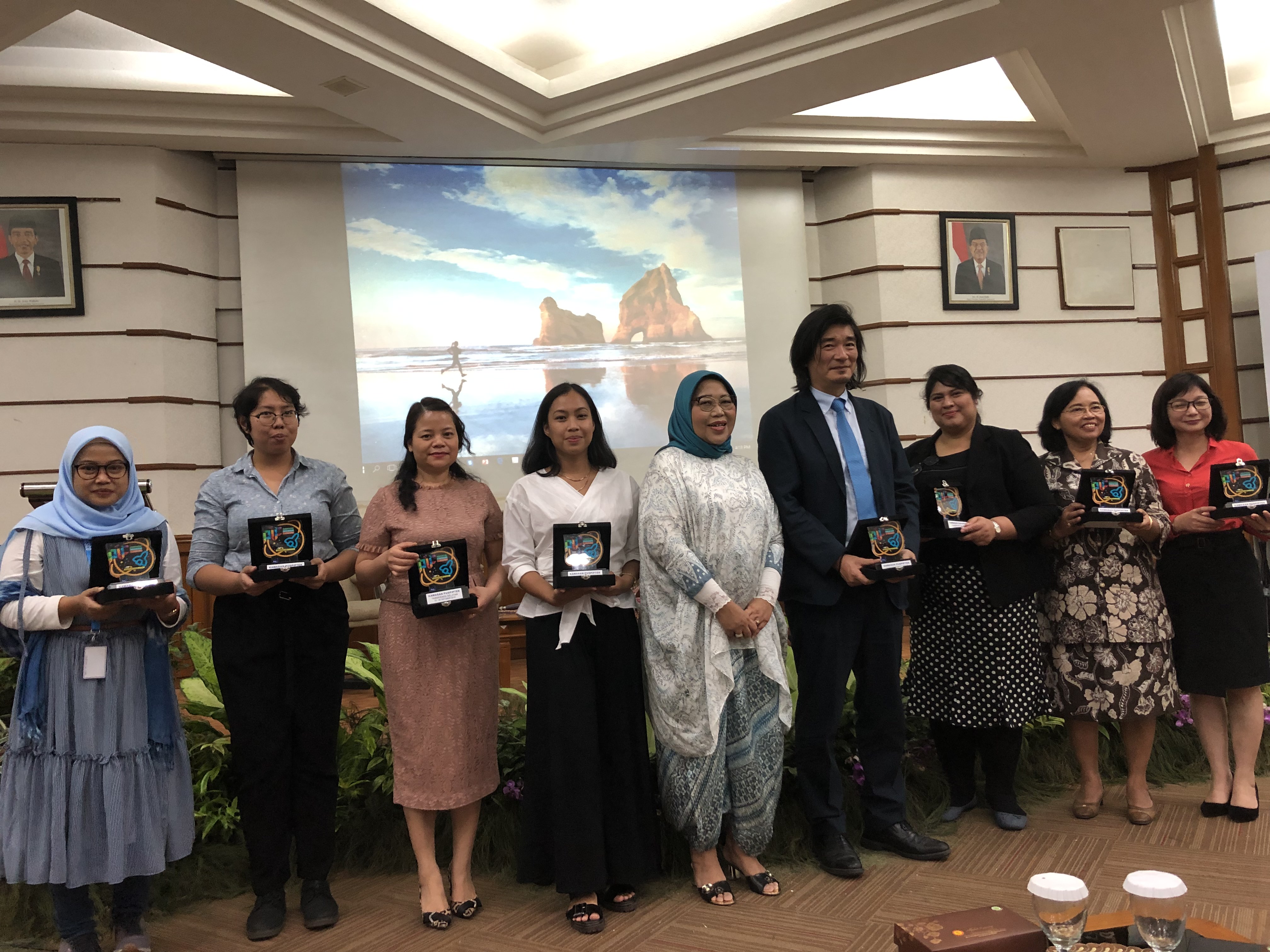Center for Research Science and Technology (PUSPIPTEK), The Ministry of Research, Technology, and Higher Education of the Republic of Indonesia, organized the “Puspiptek Innovation Festival” (PIF) 2019 as annual event since 2017, which was held at Puspiptek, Tangerang Selatan City, Banten Province, Indonesia from 3 to 6 October 2019. The theme this year is “Innovation without Limits”. This theme was chosen with the intention that innovation is not limited by race, region, level of education, age, and gender so that it becomes part of sustainable development solutions.
Mr. Ryuichi Fukuhara from JASTIP and Fitrie Nurritasari from UNESCO opened the session as the session organizers. Followed by a panel discussion about the challenges and opportunities for Women in Innovation. Here is the speaker’s list:
Gregoria Mandias, Associate Advisor of ANGIN Impact
Dr. Tran Thi Minh Thi, Institute for Family and Gender Studies, Vietnam
Prof. Dr. Kay Lwin Tun, University of Yangon, Myanmar
Ms. Adila Khairul Anuar, WOMENWHOCODE KL
Dr. Edia Rahayuingsih, GamaIndigo, Universitas Gadjah Mada
Dr. Nguyễn Thị Hoàng Liên, VNU – Hanoi University of Science
Gregoria Mandias spoke and delivered presentation particularly on “Social Innovation, Women in Spotlight” that was co-organized by UNESCO and JASTIP (Japan Asean Technology Innovation Program) on the 5th of October. Gregoria talked about the involvement of women in innovation within a topic titled “Social Innovation: More Opportunity for Women?”.
The discussion was started by a strong opening statement, “Yet even in Scandinavian countries, which are in many ways the leaders in gender equality, women are not getting ahead in these areas. The picture is Asia and the Pacific is contrasted as Asia host one champion on gender gap index, the Philippines (10th in 2018) and others with a higher proportion of female researchers can be found in Malaysia (49 %) and Thailand (51 %) where girls tend to outscore boys (UIS, 2014; OECD 2014) and Myanmar is also following this trend. However, the picture is less equilibrated for the Republic of Korea (17 %) and Japan (14 %). So how to promote women in innovation and induce social and cultural transformational changes and provide the innovative solutions we all need now and to deliver Agenda 2030 attaining the Sustainable Development Goals (SDG)?”
Following the opening statement, Gregoria highlighted that social entrepreneurship is naturally more familiar to women while giving them more space to develop the economy, resulting in higher GDP for countries with high involvement of women.





